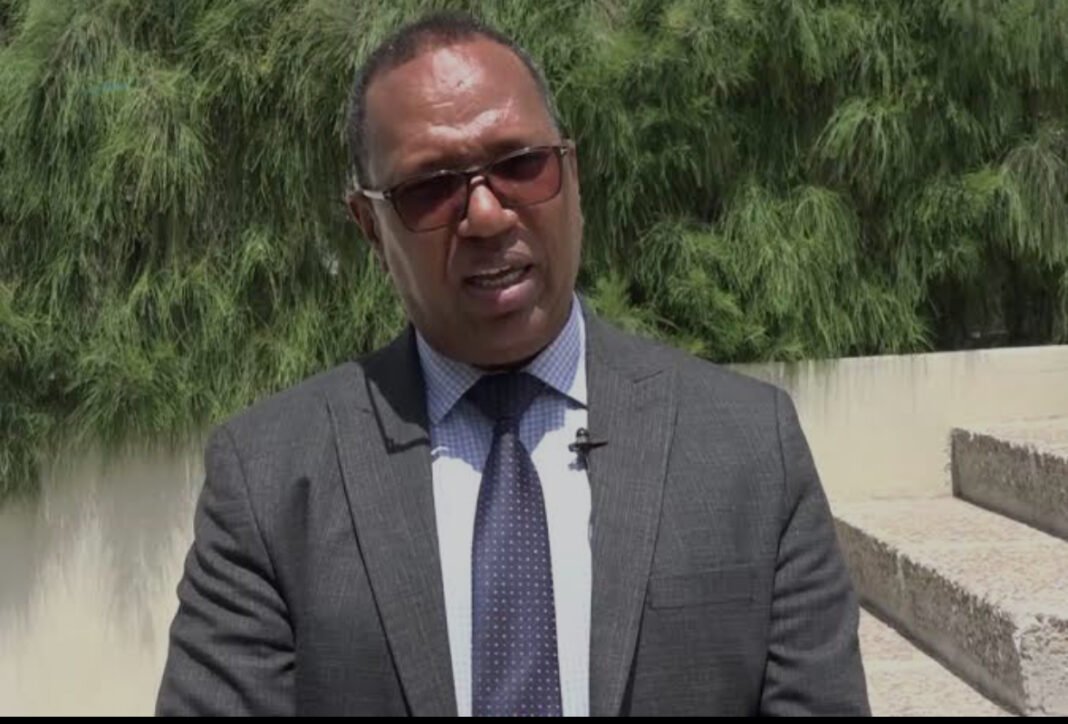MOGADISHU (HAN) – The Federal Government of Somalia has announced the launch of large-scale development projects aimed at improving the quality of roads, modernizing drainage systems, and restoring the beauty of the capital city, Mogadishu.
Minister of Public Works and Reconstruction, Dr. Elmi Mahmoud Nur, said in an exclusive interview with the national broadcaster’s Raad Raac program that the new initiatives will address long-standing infrastructure challenges, particularly flooding that disrupts movement during the rainy season.
According to the minister, the government has already begun implementing a pilot project called “NAGAAD”, which has been tested in six cities, including Mogadishu, Garowe, and Hargeisa. He noted that the program has already brought visible improvements in city planning, road construction, and drainage management.
“We have recently established a new quality assurance system for construction materials, including a laboratory dedicated to testing standards. The President himself witnessed the success of this initiative during his visit to Dhusamareb. It’s a tangible step toward national self-reliance in construction,” said Minister Elmi.
Visible Urban Transformation Across Somali Cities
The minister highlighted that the ongoing projects have significantly reshaped several urban centers, improving aesthetics and aligning them with international urban standards.
In Garowe, for instance, modern bridges and drainage channels have been completed, easing transportation and stimulating local economic growth.
“We are now constructing durable roads and major drainage systems designed to ensure that rainfall will no longer damage Mogadishu’s streets. The new underground drainage networks will help restore the capital’s former beauty,” Dr. Elmi added.
The NAGAAD Project – A Sustainable Solution for the Capital
Dr. Elmi revealed that the first National Construction and Urban Development Conference will be held in Mogadishu in early November, bringing together key international partners and stakeholders.
The first phase of the NAGAAD project will focus on building underground drainage lines from the KM4 junction to Lido Beach, at an estimated cost of over $50 million.
“Our studies showed that Mogadishu’s drainage infrastructure has largely collapsed. This new plan offers a sustainable solution for the city’s roads and water systems,” the minister explained.
Implementation Set for 2026
According to Dr. Elmi, the full implementation of the project will officially begin in early 2026, marking a new chapter for the capital’s infrastructure resilience.
“Frequent road damage in Mogadishu has been caused by floods and the absence of effective drainage systems. With durable underground water channels, runoff will be managed naturally, preventing the destruction and losses experienced in the past,” he said.
The minister concluded by emphasizing that these infrastructure efforts are part of the government’s broader Dan-Qaran agenda, which aims to enhance public services, strengthen economic infrastructure, and restore the nation’s image.
“The government has developed a clear and lasting strategy, investing nearly $1 billion in the capital’s road network alone. This marks a new beginning—turning the hopes and dreams of the Somali people into visible progress,” Dr. Elmi said.





